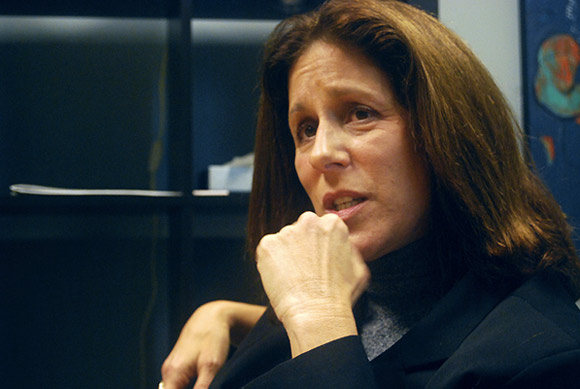Editor's note: This article first appeared in sister publication Pop City.
A century ago, entrepreneurs flocked to Pittsburgh for its rivers and minerals — resources that fueled the growth of large, industry-defining companies. Today the city offers other enticements to a new generation of entrepreneurs as its economic base shifts from industry to technology: an abundance of university research, low overhead costs and a growing reputation for livability.
Yet despite these advantages and Pittsburgh’s largely successful efforts to reinvent itself after the demise of the steel industry, some challenges remain for start-ups to develop into large firms to become pillars of the regional economy, entrepreneurs and investors say.
Many successful start-ups have sprouted in Pittsburgh in recent years, but as in most cities, some have had to move their executive offices elsewhere as they’ve expanded. Among them? Online fashion retailer ModCloth, now based in San Francisco, but maintaining an office in Pittsburgh, and the social commerce website Lockerz, now operating out of Seattle. Both relocated to be closer to investors.
“We seem to be in this mode of lots of very interesting, very early stage companies that get acquired and pulled away before they really have a chance to mature into big, stable, long-term anchor tenants in the region by virtue of not having the resources they need to grow and establish a permanent base here,” said Sean Sebastian, managing partner at Birchmere Ventures. “I sort of feel like we’re a feeder system to the larger markets out there, which is frustrating.”
Yet some companies persist, and grow. Look no further than RedZone Robotics, Complexa, BodyMedia and many other early-stage companies that recently raised significant venture capital rounds from local VCs and outside money imported to the region, says Terri Gleuck of Innovation Works.
Another venture capitalist, Jay Katarincic, managing director of Draper Triangle Ventures, said venture funds outside the region “want to see a local investor in the company because they (will) know somebody’s watching over it. If we don’t have the local dollars, those companies will move.”
Others say such outcomes don’t necessarily reflect badly on Pittsburgh. After all, ModCloth still employs about 100 people in the Pittsburgh area, notes Audrey Russo, president and chief executive officer of the Pittsburgh Technology Council. “When you have vitality of activity, that’s not a failure. If everyone starts here and then leaves, then maybe something’s wrong, but that’s not what happens.”
Note: Since this story was written, ModCloth closed on a $25 million round of funding which will support hiring an additional 84 people in the Pittsburgh office. See the Pop City story here.
Glueck thinks Pittsburgh is enjoying a renaissance of growth in terms of outside investment, employment growth and customer traction. She points to Acquion Energy as one of a number of energy startups attracting attention and significant investment to the region with the distinct intention of growing in Pittsburgh. Their novel Aqueous Hybrid Ion battery may revolutionize energy storage as an earth-friendly, efficient alternative to existing batteries for the electric grid and other industrial applications, she adds. “With tens of millions of dollars in venture capital and other financing, Aquion has roughly 80 employees in Lawrenceville and expects another 300 jobs to be added at their production facility when completed in Westmoreland County.
On the life sciences side, she cites ALung Technologies, BlueBelt Technologies, Cohera Medical, ClearCount Medical Solutions and other local startups that recently received their CE Mark to sell their products in Europe, an important step in market adoption and the path to FDA approval domestically. “This milestone marks significant growth on both the scientific end – proof the technology works – as well as sales.”
Simply succeeding as a start-up and being acquired should be viewed as a positive event, said Art Boni, director of the Donald H. Jones Center for Entrepreneurship at Carnegie Mellon University’s Tepper School of Business. “The gain is that we’ve demonstrated that we can start companies, successful companies, and to me, that’s very, very positive. The second thing is, if they do get bought, there’s going to be cash generated” that could be used to fund other start-ups.
It’s a matter of perspective according to Lalit Chordia, president and founder of the alternative energy tech firm, Thar Technologies. “You would really want these companies to grow in Pittsburgh, but you know what? You’ve got to deal with the realities. You need to go where the business is. That’s the reality.”
On the other hand, Eric Silver, a former ModCloth executive and founder of the online decision-making company Pikimal, said Pittsburgh entrepreneurs enjoy certain cost advantages. Silver was able to support a team of 13 for a year with $1.5 million, while a counterpart in San Francisco could only support five people with $2 million.
Other factors – the city’s transportation system and physical infrastructure, as well as its limited access to international destinations and lack of direct flights from other cities – also may affect entrepreneurship and investment.
“The city has a very weak transportation system both inside the city and traveling outside the city,” said Andy Hannah, president and chief executive officer of Plextronics, a printed electronics company. “No matter how connected we are digitally, you have to meet face to face in order to create business.” That said, Hannah remains optimistic about Pittsburgh's future and prefers to focus on growing startups that can become pillars of the economy.
And certainly Pittsburgh isn’t alone in its challenges. Birchmere Ventures’ Sean Sebastian said California – home to Silicon Valley, the country’s largest venture capital market – was “a terrible place to start a business from a tax and permitting perspective. You’re going to build a company where you have the best probability of success, and it’s not taxes that are going to determine that. It’s money, it’s talent. Where can I get the best people? Where can I get the most money? Where can I move fastest?”
Colin Huwyler found Pittsburgh’s entrepreneurial environment decidedly more supportive than that of native Buffalo, NY, where he and a partner developed a prototype of his company’s Vector biofuel system, a bolt-on device that allows diesel vehicles to run on cheaper, alternative fuel, such as vegetable oil.
“We looked at a number of cities and Pittsburgh, in our evaluation, had a lot of energy, a significant among of support, a lot of new companies and start-ups and there was a lot of movement in the green technologies space,” said Huwyler, chief executive officer of Optimus Technologies, which he moved to the city in 2007, then enrolled in Pitt’s Swanson School of Engineering. “A lot of what we do involves welding, fabrication, machining. There is a huge knowledge base in those trades here and we feel we’ll have a good, skilled workforce to pull from as we grow.”
The company received a seed-stage investment from the nonprofit Idea Foundry, built a small pilot plant in the city’s Garfield neighborhood, produced about 100 units, and entered into demonstration project arrangements with the city’s Public Works Department, Giant Eagle, and a construction union training center in New Alexandria, Westmoreland County.
Huwyler sees a future in Pittsburgh if all goes well. A key factor will be the ability to raise capital and whether there are strings attached that affect where the company is located. “We’re hoping to tap into resources in the area, but we’re also looking for investment outside of the region. There are a lot of folks not concentrated around here who have clean energy-specific funds and we are targeting some of those. But we’d like to expand in Pittsburgh.”
PittsburghTODAY is a program of the University of Pittsburgh; its work, including statistical comparisons of Pittsburgh to 14 other regions, can be found at PittsburghTODAY.org.
Photographs copyright Brian Cohen
View of Downtown Pittsburgh
Audrey Russo
Modcloth




